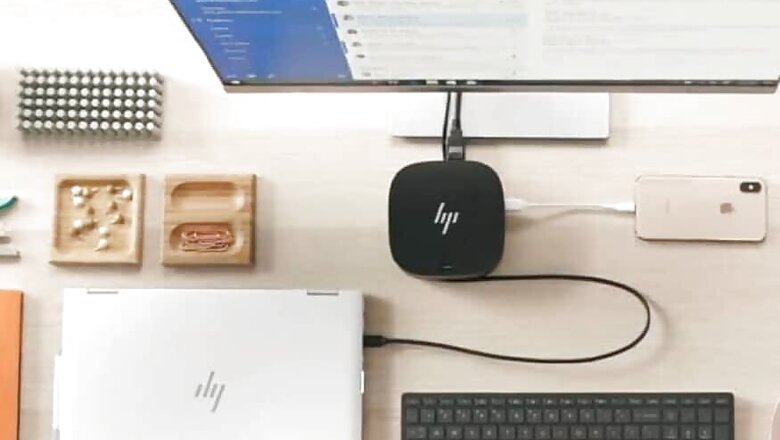
views
Editors' Note: The Industry Dialogue is a multi-part series by News18.com in which the industry talks about the impact of the Coronavirus pandemic and the challenges because of the COVID-lockdown, as well as the possible solutions and measures to get the economy back on track at the earliest.
Unexpected events bring in changes which last much after the change agent itself. Today we are in the middle of one such event, that has pushed and redefined the traditional boundaries between home and workplace. In less than a fortnight, more than 90% of the workforce across India had to sign in to work from home. This is unprecedented and it forced almost every organization to look at their business continuity plans. Every company had to ensure the wellbeing of its employees, customers, partners and communities while doing their best to remain open for business. Governments and Public Sector organizations too have had to stay operational to maintain essential services. One common thread that has held things together, and allowed many individuals, organisations and governments to continue functioning, is technology. A decade ago, an event of the same magnitude would have brought the world to a grinding halt. Today the ubiquity of 4G and broadband internet, coupled with the availability of notebook PCs, peripherals and collaborative software, has made it possible to rapidly redeploy the workforce from home or remote locations.
The Haves and the Have Nots
Having said that - not every organisation though has been able to make this transition easily. And the ones that haven’t, are the ones who have not invested enough in a mobile workforce. India’s traditional business model has long demarcated the office from home - perhaps a hangover from the pre-internet era, which many of us still remember vividly. But then there are the millennials and Gen Z— generations that been surrounded by technology all their lives. For them work is where the Wi-Fi is. A statement that has perhaps never been more relevant. Today, the list of jobs that can not only be done online but performed even better digitally is constantly increasing.
Mobility solutions are determining in how organisations are interacting with employees, partners, and customers, and keeping the wheels turning. Businesses have been forced to rethink the way they operate and to some extent, accelerated the speed at which businesses prepare for the future of work, which will be underpinned by flexibility and mobility.
The Office of the Future
Today, more than ever – mobility is king. Organisations who realize this and adapt quickly, will be able to transform their business and workforce seamlessly. A key aspect of the transformation will be IT transformation. And for that – business leaders will need to channelize resources to enable the workforce to keep the business running for any such eventualities in the future.
It will require investing in the right devices, adopting right solutions to enable collaboration, and prioritizing security features for the safety of sensitive data/information. Mobility after all, does not only encompass mobile phones, but also includes laptops, AR/VR headsets, and other smart devices. OPEX, or operating expenditure investments will need to be prioritized for IT assets over traditional expenses. Because the concept of workplace will no longer mean office space, it may just be a company’s IT set up.
Keeping it Safe
Be it home or office, an organisation’s data must remain secure. This becomes a challenge for administrator’s in the mobile work environment. IDC estimated that there will be an estimated 29.5 billion connected devices globally, and Asia Pacific alone is home to 8.6 billion of these devices. As the universe of connected devices continues to grow, cyber-attacks and data breaches increase in tandem, and India happens to be a hot favourite for cyber attackers. Therefore, it will be equally critical to focus on IT security for the employee working from home or remotely. From truly enabling such a work force – device mobility, security, and collaboration tools will be a non-negotiable.
The Road Ahead
As bleak as today may look, there is light at the horizon. The lockdowns may be lifted partially, and we may return to work in a few weeks. And when we do, it will be critical for every organisation to take stock and recalibrate itself to prepare for a better response to any such eventuality in the future. The events of the last few months have shown us that the ability to continue being operational, while not being in office is the new benchmark.
By chance and not by design, the office of the future is already here. Working from home will now be the new normal. And it is not what was described in sci-fi books - for it is not just about automation and technology upgrades. Instead, it will require a holistic strategy that focuses on delivering experiences that will allow companies a sustained competitive advantage.
About the Author:
Vickram Bedi is Senior Director, Personal Systems at HP Inc. and looks after the India, Bangladesh & Sri Lanka regions.




















Comments
0 comment